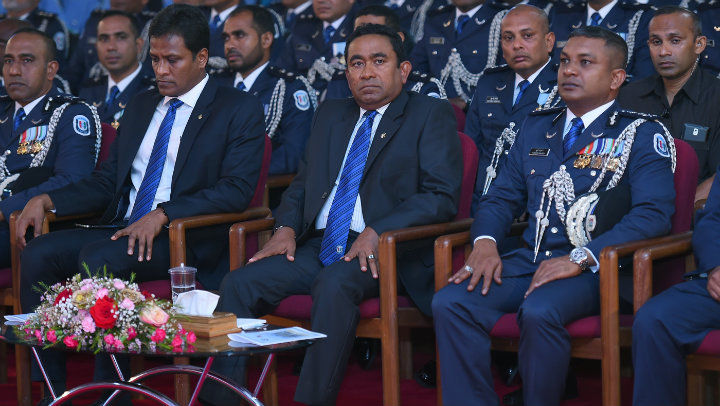After social media outcry, government vows not to abuse anti-terrorism law
Home Minister Umar Naseer has vowed that the government “will not abuse” the Anti Terrorism Act in the wake of a public outcry over fears that the law could be used to prosecute dissidents.

29 Oct 2015, 09:00
Home Minister Umar Naseer has vowed that the government “will not abuse” the Anti Terrorism Act in the wake of a public outcry over fears that the law could be used to prosecute dissidents.
“The knife in the kitchen can be used to cut vegetables or kill a person. Every law is like that. Govt will NOT abuse the Anti-Terrorism Act,” Naseer said in a tweet.
The government-sponsored legislation was passed with 49 votes in favour, 22 against, and three abstentions. The ruling Progressive Party of Maldives (PPM) and coalition partner Maldives Development Alliance control 49 seats in the 85-member house.
MPs of the main opposition Maldivian Democratic Party (MDP) had submitted 11 amendments to the bill, all of which were rejected.
Become a member
Get full access to our archive and personalise your experience.
Already a member?
Discussion
No comments yet. Be the first to share your thoughts!
No comments yet. Be the first to join the conversation!
Join the Conversation
Sign in to share your thoughts under an alias and take part in the discussion. Independent journalism thrives on open, respectful debate — your voice matters.




